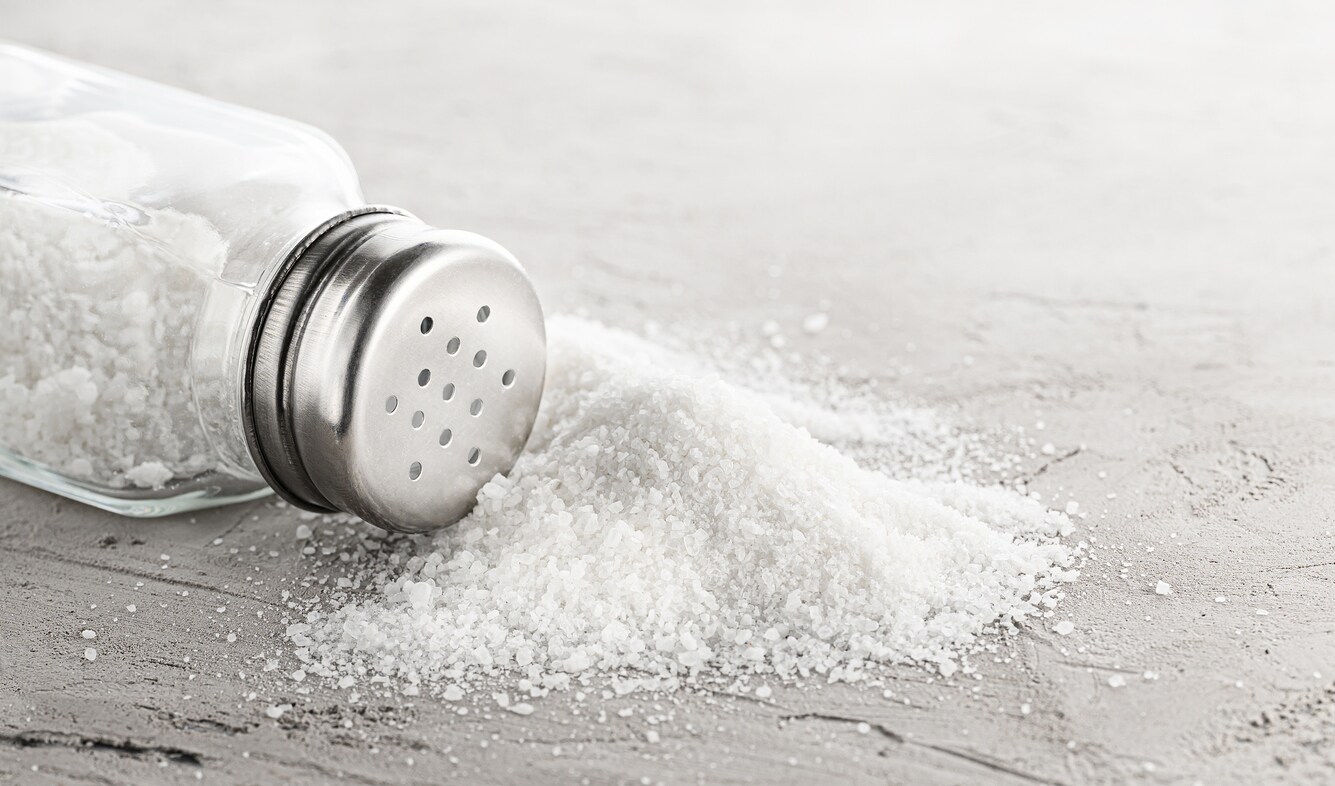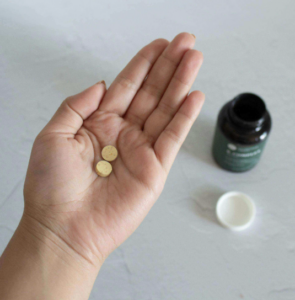Some salt in a diet can be good for you. However, if you suffer from regular bloating after eating, then you may want to check your sodium intake, according to a study published in The American Journal of Gastroenterology. Fortunately, there are remedies you can use to flush salt out of your body and beat the bloat.
Here are some methods to flush salt out of your body overnight, so you wake up feeling and looking your best the next day.
Salt and Bloating: What’s the Connection?
Sodium, a mineral found in salt, causes the body to retain water, which causes bloating. One study looked at how sodium was linked to bloating.
Half of the study participants stuck to a Western, low-fiber diet. Others followed a high-fiber DASH diet. Results showed that increasing sodium caused bloating in both groups, proving that the sodium-bloat link was a factor regardless of diet.
Therefore, the best way to avoid bloat is to limit the amount of sodium in your diet. But if you just can’t live without the taste, here are a few methods to keep your stomach nice and flat.
1. Stay Hydrated
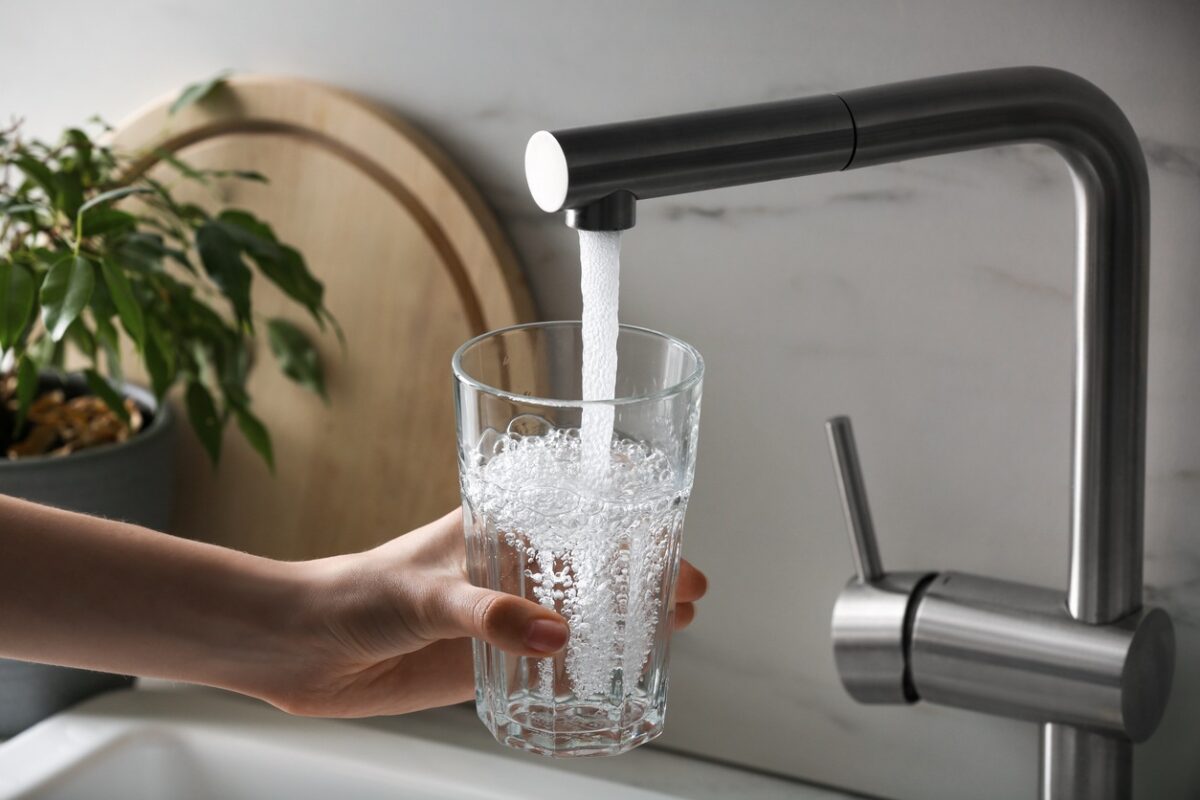
Hydrating fluids like water and herbal teas will flush salt out of your system. They will lubricate your intestines and stomach to aid with the digestion of salt and other foods. If you have consumed a lot of salt and are experiencing bloating, try drinking at least one liter of a hydrating liquid. It should get rid of the bloat within hours.
You can also stay hydrated through other sources. For example, fruits, vegetables, and non-sodium soup broths have high water content, which helps flush salt from your body.
Avoid drinking sports drinks. Although they are said to promote hydration, they have a high sodium content, which could make bloating worse.
2. Increase Potassium Intake
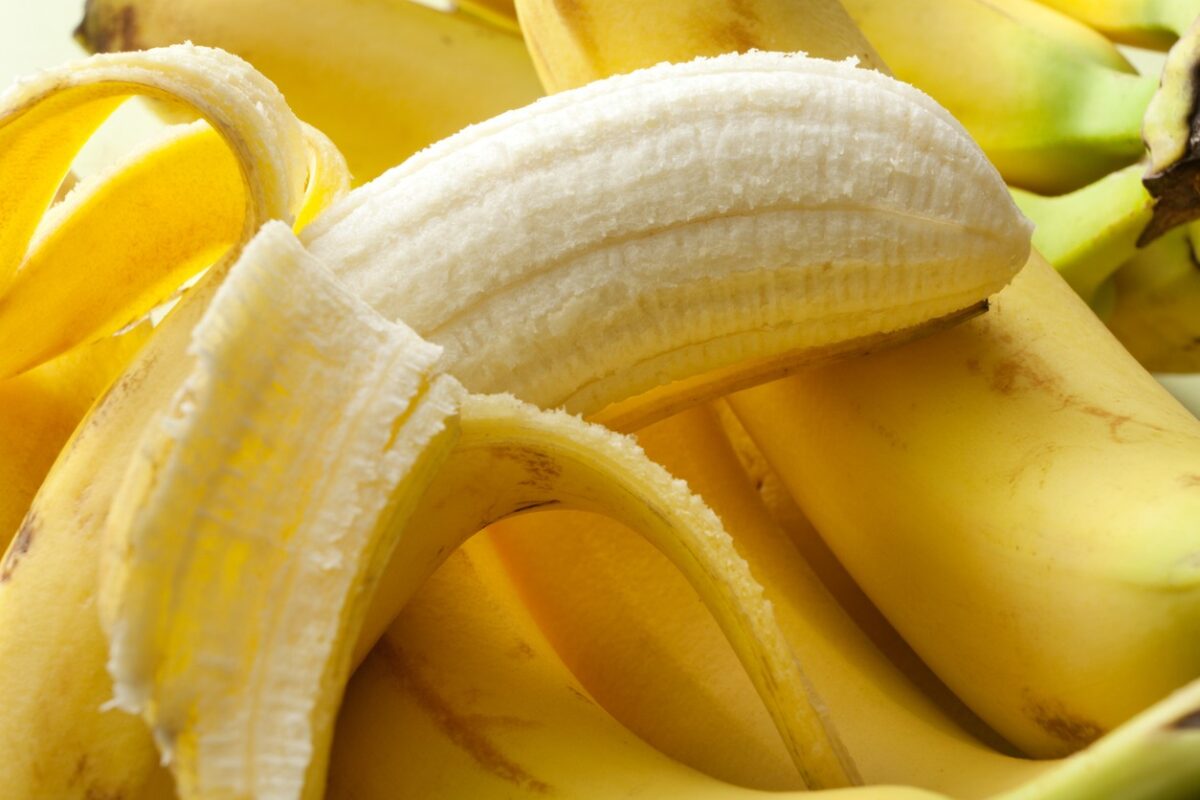
Potassium plays a major role in maintaining fluid balance in the body. Consuming foods rich in potassium, such as potatoes, avocados, and bananas, will reduce the effects of sodium and help move it out of the body.
However, it’s important not to rely on potassium too often to reduce bloating. As you get older, it can get harder to remove potassium from your blood. If there is too much potassium in your blood, it can cause kidney damage.
To minimize the risk of kidney damage, get your potassium from food sources rather than supplements.
3. Increase Your Physical Activity
Exercising makes you sweat, which causes the body to get rid of water and salt. Drinking water while engaging in physical activity will further aid this process and keep you hydrated.
However, drinking too much water during exercise can lead to a rare condition called hyponatremia, which causes blood sodium to become too low. It is more likely to happen in hot conditions that make you sweat excessively. Athletes and marathoners run a higher risk of developing the condition.
4. Take an Epsom Salt Bath
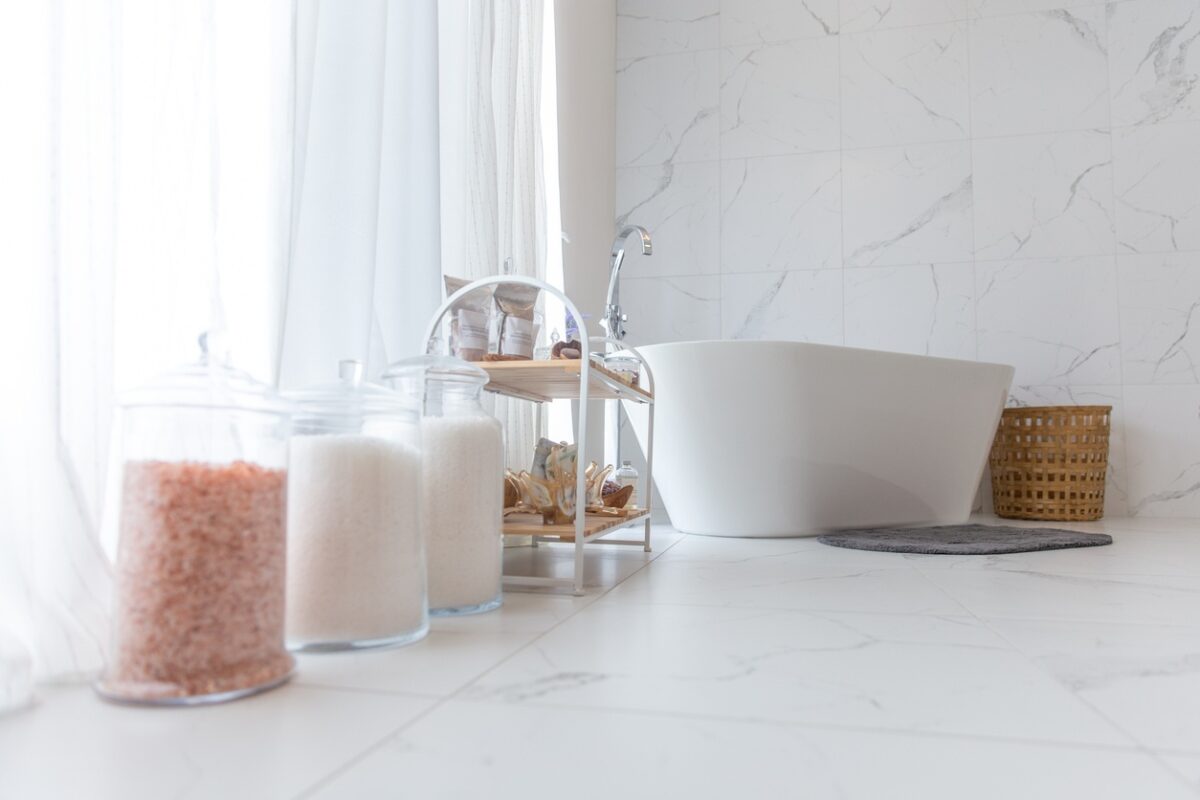
Epsom salt contains magnesium, which is known to drain the body of excess water and toxins. A warm bath also promotes sweating, which can further aid in removing salt. The bath can also help with constipation and other digestive issues.
If you are feeling the bloat, go in for a good soak. You should feel better by the time you get out of the bath.
5. Add Magnesium-Rich Foods and Supplements
Magnesium is helpful in getting rid of bloat as it aids potassium activity in removing salt from your body. One way to add magnesium to your diet is by taking a supplement.
In addition to reducing bloating, magnesium also helps you get a good night’s sleep. So if you take a supplement before going to bed, you will wake up feeling rested and without the salt bloat.
You can also add magnesium to your diet by eating magnesium-rich foods. These include:
- Leafy greens
- Fatty fish
- Avocados
- Seeds
- Bananas
6. Try Flat Tummy Tea
Flat Tummy Tea is a special tea that contains peppermint, fennel seeds, and dandelion root.
Fennel seeds have antimicrobial properties that promote good bacteria in your gut, aiding digestion. Peppermint is an antispasmodic that calms spasms in the stomach, improving digestion. Dandelion lubricates the system, aiding in eliminating salt and other foods.
7. Drink Some Ginger Tea
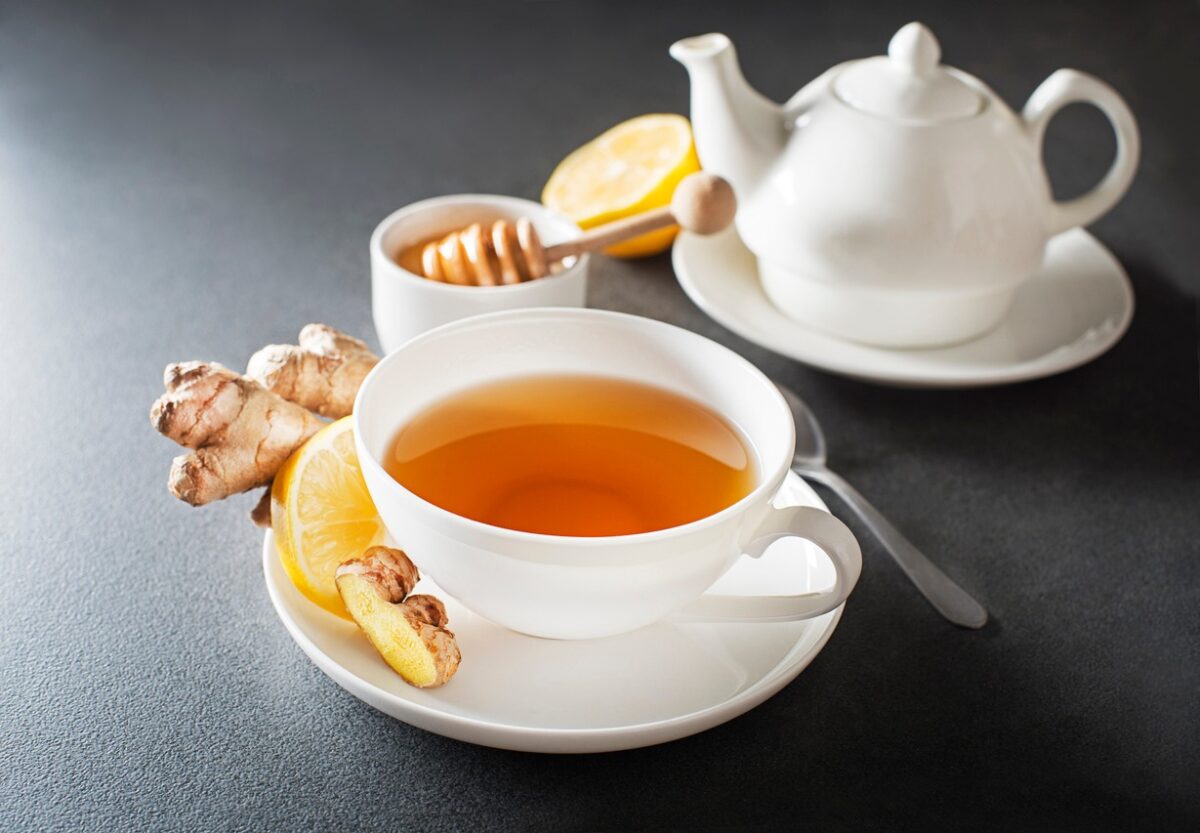
Ginger tea has long been used to treat digestive issues. Its anti-inflammatory properties can relieve imbalances caused by sodium and soothe irritation.
The tea can also promote sleep, so if you drink a glass at bedtime, you will wake up refreshed with a flat tummy.
When to Talk to Your Doctor
If you don’t consume that much salt but find you are often bloated due to sodium intake, you may want to talk to your doctor. If you are sensitive to salt, it may be a sign of a bigger problem, such as cardiovascular disease or high blood pressure. A medical professional will be able to tell you if the reaction you are having is cause for concern.
How Much Sodium Should You Consume?
Minimizing sodium intake can reduce bloating, but some sodium is required in a healthy diet. It helps the muscles contract and relax, and it aids in regulating fluid in the kidneys to prevent dehydration. It is also involved in maintaining cellular homeostasis and fluid and electrolyte balance.
So, how much sodium should you be consuming? According to the Dietary Guidelines for Americans, individuals should consume less than 2300 mg of sodium daily. Unfortunately, most people consume much more than that, averaging around 3400 mg a day.
In addition to causing bloating, excess sodium can also increase the risk of high blood pressure, heart disease, and stroke.
If you are experiencing bloating because of your intake, the tips in this article will help you overcome it, so you look and feel your best. Which methods do you use when you feel the bloat start to come on?
Products to help you flush the salt out:



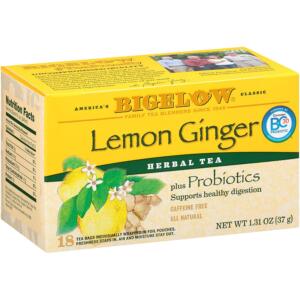
Read Next:
How Your Skin Benefits from Salt Water

